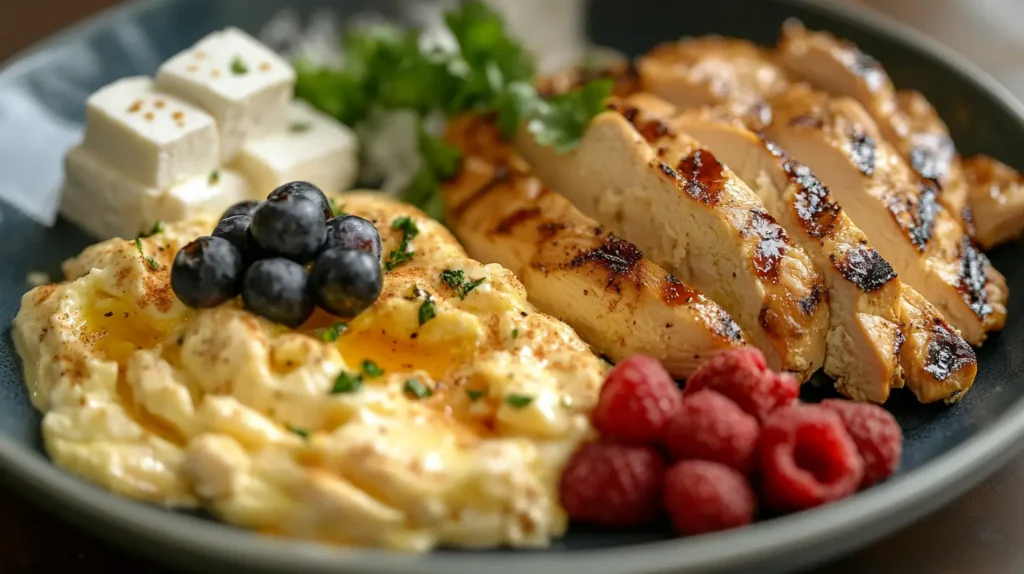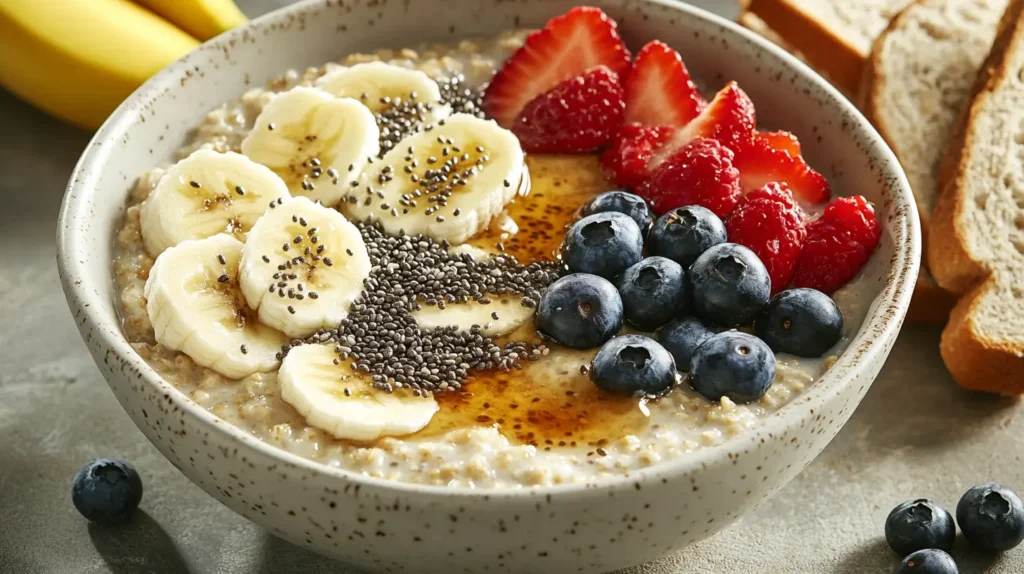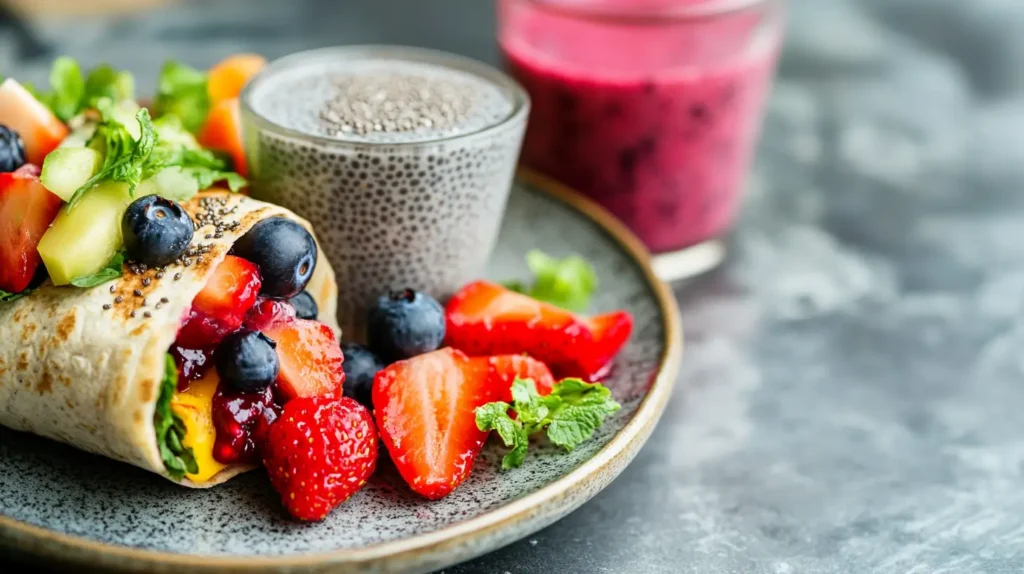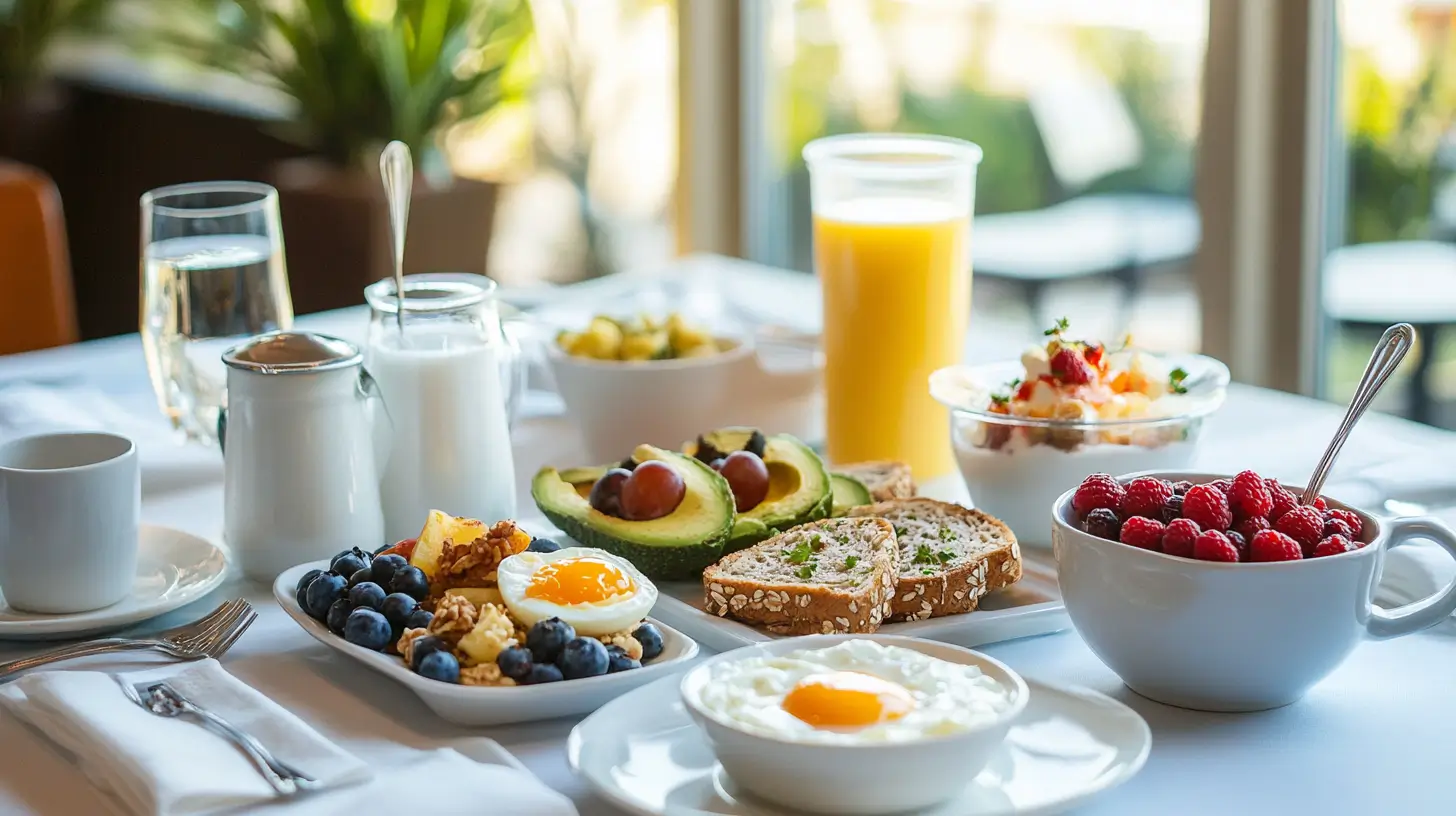Breakfast has often been called the most important meal of the day—and for good reason! Starting your morning with a satisfying and filling breakfast is like fueling your car before a long drive. It gives your body the energy it needs to kickstart the day, keeps you focused, and can even help curb unhealthy cravings later on. But what makes a breakfast truly filling? It’s not just about piling your plate high with food but choosing the right combination of ingredients to keep you full, energized, and happy until lunchtime.
In this article, we’ll explore why a filling breakfast is essential, the components that make it wholesome, and practical tips for creating delicious morning meals. Whether you’re someone who loves traditional breakfast staples or enjoys experimenting with unique dishes, you’ll find plenty of ideas to ensure your breakfast sets you up for a productive day. Let’s dig in!
Why a Filling Breakfast is Essential
The Role of Nutrition in a Filling Breakfast
What you eat in the morning sets the tone for the rest of your day. A nutritious, filling breakfast includes all three macronutrients—proteins, carbohydrates, and healthy fats—along with essential vitamins and minerals. These components not only keep you full but also support your body’s metabolic and energy needs.
For example, proteins help with muscle repair and satiety, while carbohydrates are your body’s main energy source. Healthy fats and fiber-rich foods slow down digestion, keeping you full for longer. Together, these nutrients work like a well-balanced team to keep your hunger pangs at bay.
Energy Levels and Productivity
Ever notice how skipping breakfast makes you feel sluggish? Your body and brain need fuel to function, especially after an overnight fast. A hearty breakfast replenishes your glucose levels, which are crucial for focus, memory, and problem-solving skills. Research even shows that individuals who eat breakfast are more productive throughout the day compared to those who skip it.
Weight Management and Satiety
A filling breakfast also plays a role in managing your weight. Eating the right foods in the morning can reduce the chances of overeating later. This is because a high-protein, high-fiber meal helps regulate hormones like ghrelin, which controls hunger. By keeping you full for longer, a good breakfast prevents those mid-morning snack cravings for sugary or processed foods.
Key Components of a Filling Breakfast
The secret to a filling breakfast lies in its ingredients. It’s all about creating a balanced meal that satisfies hunger, keeps you energized, and provides the nutrients your body needs. Let’s dive into the essential components of a wholesome, satisfying breakfast.
Protein-Packed Foods

Proteins are the building blocks of a filling breakfast. They take longer to digest, which helps keep you full and satisfied. Plus, they’re excellent for muscle repair and energy.
Here are some protein-rich options to include:
- Eggs: A classic choice, packed with high-quality protein and versatile for various recipes.
- Greek Yogurt: Thick, creamy, and loaded with protein. Add some fruit or granola for a delicious combo.
- Tofu and Tempeh: Ideal for plant-based eaters, these soy-based proteins can be scrambled or seasoned.
- Cottage Cheese: A creamy, protein-rich option that pairs well with fruits or honey.
- Lean Meats: Turkey or chicken sausages are a great addition for meat lovers.
Healthy Carbohydrates
Carbs often get a bad rap, but they’re essential for energy. The key is choosing the right type of carbohydrates—those rich in fiber and nutrients.

Top healthy carbohydrate options include:
- Oatmeal: A hearty, fiber-rich choice that can be customized with toppings like fruits, nuts, or seeds.
- Whole-Grain Bread: Ideal for toast or breakfast sandwiches.
- Sweet Potatoes: A nutrient-dense carb that works well in breakfast bowls or as hash.
- Fruits: Bananas, berries, and apples provide natural sugars and fiber for sustained energy.
Healthy Fats
Don’t shy away from fats—they’re essential for satiety and help your body absorb key vitamins. Healthy fats also make your breakfast more enjoyable and flavorful.
Some great sources include:
- Avocados: Spread on toast or sliced as a side, avocados are a creamy, nutrient-packed option.
- Nuts and Nut Butters: Almonds, walnuts, and peanut butter add texture and a boost of healthy fats.
- Seeds: Chia, flax, and sunflower seeds are excellent for sprinkling over oatmeal or yogurt.
Fiber-Rich Ingredients
Fiber slows digestion, helping you stay full and stabilize blood sugar levels. Incorporating fiber into your breakfast ensures you won’t feel hungry before lunch.
Fiber-rich options include:
- Vegetables: Spinach, kale, and tomatoes can be added to omelets or smoothies.
- Whole Grains: Quinoa or barley are excellent choices for breakfast bowls.
- Chia Seeds: When soaked, they create a pudding-like texture perfect for a morning treat.
Tips for Creating a Filling Breakfast
Balancing Macronutrients
A balanced breakfast includes a combination of carbs, proteins, and fats. For example, a meal of scrambled eggs (protein and fats) with avocado toast (carbs and fats) and a side of berries (fiber and natural sugar) covers all bases. This balance helps keep energy levels steady and hunger under control.
Portion Control
While it’s important to eat enough to stay full, overloading your plate can lead to sluggishness. Aim for portions that satisfy your hunger without leaving you uncomfortably full. Using smaller plates and measuring ingredients can help with this.
Meal Prep for Mornings
Mornings can be rushed, but a little prep work can make breakfast a breeze. Try these tips:
- Overnight Oats: Mix oats, milk, and toppings in a jar and refrigerate overnight for a grab-and-go meal.
- Pre-Cooked Proteins: Cook extra eggs, sausages, or tofu in advance to save time.
- Smoothie Bags: Pre-portion fruits, veggies, and seeds in freezer bags so you can blend them quickly.
Delicious Filling Breakfast Ideas
Quick and Easy Recipes
When mornings are hectic, quick recipes can save the day while keeping you full and satisfied. These ideas require minimal prep but pack a punch in terms of flavor and nutrition:
- Avocado Toast with Egg: Spread mashed avocado on whole-grain toast, top with a poached or fried egg, and sprinkle with salt, pepper, and chili flakes.
- Greek Yogurt Parfait: Layer Greek yogurt with fresh berries, a drizzle of honey, and a sprinkle of granola for a balanced and refreshing breakfast.
- Peanut Butter Banana Smoothie: Blend a banana, a scoop of peanut butter, a splash of almond milk, and a handful of spinach for a nutrient-dense drink.
International Breakfast Options
Take inspiration from around the globe for a unique twist on breakfast. These dishes are hearty, flavorful, and nutrient-rich:
- Shakshuka (North Africa and Middle East): Poached eggs simmered in a spiced tomato and bell pepper sauce, served with crusty bread.
- Congee (China): A warm rice porridge topped with savory additions like shredded chicken, scallions, and soy sauce.
- Frittata (Italy): A baked egg dish filled with vegetables, cheese, and sometimes meat, perfect for slicing and serving.
Vegetarian and Vegan Choices

Plant-based breakfasts can be equally filling when prepared with the right ingredients. Here are some delicious options:
- Chickpea Flour Omelet: Made with chickpea flour, water, and spices, this vegan omelet is packed with protein and can be stuffed with veggies.
- Vegan Breakfast Burrito: A tortilla filled with scrambled tofu, black beans, avocado, and salsa for a satisfying start to the day.
- Overnight Chia Pudding: Mix chia seeds with plant-based milk, let it set overnight, and top with fruits, nuts, and coconut flakes.
High-Energy Snacks for On-the-Go
If you need a portable breakfast, these options are perfect for grabbing as you head out the door:
- Homemade Granola Bars: Packed with oats, nuts, and dried fruits, these are easy to make ahead and customize.
- Breakfast Wraps: Whole-grain tortillas filled with scrambled eggs, spinach, and cheese or avocado.
- Yogurt and Fruit Cups: Layer Greek yogurt and fruits in a mason jar for a convenient, nutrient-rich snack.
FAQs About Filling Breakfasts
What makes a breakfast truly filling?
A filling breakfast combines the right balance of macronutrients—proteins, carbohydrates, and healthy fats—along with fiber. This combination helps slow digestion, stabilize blood sugar levels, and keep you satisfied until your next meal. For instance, a breakfast of scrambled eggs (protein), whole-grain toast (carbs), and avocado (healthy fat) is a great example of a hearty and well-balanced meal.
Can I have a filling breakfast on a budget?
Absolutely! A filling breakfast doesn’t have to be expensive. Affordable staples like eggs, oatmeal, peanut butter, bananas, and frozen vegetables are excellent options. You can also buy in bulk to save money on items like chia seeds or nuts, which go a long way and provide significant nutritional value.
How much protein is ideal for breakfast?
Most nutritionists recommend including 15–25 grams of protein in your breakfast, depending on your daily needs and activity level. Foods like eggs, Greek yogurt, and tofu are protein-rich options that are easy to incorporate into your morning routine.
Are smoothies a good choice for a filling breakfast?
Yes, smoothies can be filling if made with the right ingredients. To create a balanced smoothie, include a source of protein (like Greek yogurt or protein powder), healthy fats (such as nut butter or chia seeds), and fiber (from fruits and vegetables). Avoid overloading on sugary fruits or sweeteners to keep the smoothie nutrient-dense.
Is skipping breakfast sometimes okay?
It depends on your body and lifestyle. Some people thrive on intermittent fasting and find skipping breakfast beneficial for their energy levels and focus. However, if you feel sluggish or experience intense hunger later in the day, a filling breakfast is likely a better choice for you. It’s about finding what works for your unique needs.
Fuel Your Day the Right Way
Starting your day with a filling breakfast isn’t just about satisfying hunger—it’s about fueling your body and mind for success. A well-balanced breakfast that combines proteins, healthy fats, complex carbohydrates, and fiber can boost your energy, enhance focus, and curb unhealthy cravings. Whether you prefer a quick smoothie, a hearty egg dish, or an international recipe like shakshuka, there are countless ways to create a satisfying meal that fits your lifestyle.
By planning ahead and choosing nutrient-rich ingredients, you can make breakfast the most enjoyable and nourishing part of your day. Avoid common pitfalls like sugary cereals or skipping breakfast altogether, and focus on meals that set a positive tone for the hours ahead. With these tips and ideas, you’re well on your way to mastering the art of making breakfast both delicious and filling. Now, it’s time to take what you’ve learned and turn your mornings into a feast of energy and productivity!

